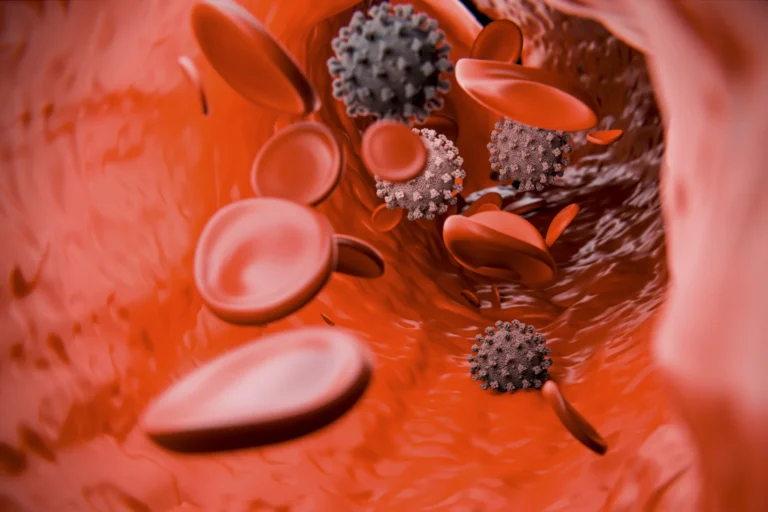Cytochrome P450 Genotyping in Drug Metabolism: Practical Applications in Pharmacotherapy
Have you ever wondered why a medication that works perfectly for one person may not have the same effect on another? The answer lies in our genes. Our genetic makeup can significantly influence how our bodies metabolize and respond to drugs, and this is where cytochrome P450 genotyping comes into play.
Cytochrome P450 (CYP450) enzymes are a group of enzymes responsible for the metabolism of around 90 percent of drugs in the body. Genetic variability in these enzymes can lead to variations in drug response and metabolism among individuals, making personalized medicine a crucial aspect of pharmacotherapy.

Key Takeaways in Cytochrome P450 Genotyping:
- Cytochrome P450 (CYP450) enzymes play a vital role in drug metabolism.
- Genetic variations in CYP450 enzymes can result in variations in drug response and metabolism among individuals.
- Cytochrome P450 genotyping enables personalized drug therapy and optimization of treatment outcomes.
- Understanding an individual’s genetic profile can help determine appropriate drug dosages and minimize adverse drug reactions.
- Cytochrome P450 genotyping is shaping the future of pharmacotherapy and personalized medicine.
Understanding Cytochrome P450 Enzymes and Genetic Testing
Cytochrome P450 enzymes are a diverse group of enzymes that are primarily expressed in the liver. These enzymes play a critical role in the metabolism of drugs, toxins, and other xenobiotics in the body. They act as a catalyst in the breakdown and elimination of various medications, influencing their efficacy and safety.
Genetic variations in cytochrome P450 enzymes can impact an individual’s drug response and metabolism. These variations can result in altered enzyme activity, leading to variations in drug efficacy, toxicity, and potential drug interactions. Understanding an individual’s unique genetic profile, particularly their cytochrome P450 genotype, is therefore essential for optimizing drug therapy.
Cytochrome P450 genotyping involves using genetic testing to identify specific variations in cytochrome P450 genes. By analyzing an individual’s genetic makeup, it becomes possible to determine whether they are poor metabolizers for certain drugs or have altered enzyme function. This knowledge is crucial in personalized medicine, as it allows healthcare providers to tailor drug therapy and dosage to each individual’s specific needs.
Genetic testing for cytochrome P450 enzymes provides valuable insights into drug metabolism and the potential for drug-drug interactions. It empowers healthcare professionals to make informed decisions regarding drug selection, dosing, and monitoring, ultimately improving patient care outcomes.
Pharmacogenetics, the study of how genetics influence an individual’s response to drugs, has paved the way for the integration of cytochrome P450 genotyping into clinical practice. By considering an individual’s cytochrome P450 genotype, healthcare providers can identify potential drug interactions and select medications that are more likely to be safe and effective.
Additionally, cytochrome P450 genotyping can help identify individuals who may be at higher risk of adverse drug reactions due to their genetic makeup. It allows for proactive measures to be taken, such as adjusting drug dosages or choosing alternative medications, to minimize the risk of harm.
Overall, understanding the role of cytochrome P450 enzymes and utilizing genetic testing for cytochrome P450 genotyping is crucial in achieving personalized medicine and improving patient care. By tailoring drug therapy based on an individual’s genetic profile, healthcare providers can optimize treatment outcomes, enhance drug efficacy, and reduce the occurrence of adverse drug reactions.
Genetic Testing for Cytochrome P450 Genotyping: Key Benefits
Genetic testing for cytochrome P450 genotyping offers several key benefits:
- Identifying individuals with altered drug metabolism
- Optimizing drug therapy and dosage based on unique genetic profiles
- Minimizing the risk of adverse drug reactions and drug-drug interactions
- Enhancing treatment outcomes and patient care
Implementing cytochrome P450 genotyping in clinical practice can revolutionize pharmacotherapy by providing personalized and tailored drug therapy based on an individual’s genetic makeup. The integration of genetic testing into routine clinical practice holds great promise for advancing personalized medicine and improving patient outcomes.
Practical Applications of Cytochrome P450 Genotyping in Pharmacotherapy
Cytochrome P450 genotyping offers practical solutions to enhance pharmacotherapy and improve patient outcomes. By analyzing an individual’s genetic profile, healthcare providers can predict drug response, identify potential drug interactions, and optimize personalized medicine. The utilization of CYP450 genotyping enables healthcare professionals to make informed decisions regarding drug therapy, dosage adjustments, and minimize the risk of adverse drug reactions.
Understanding an individual’s CYP450 genotype provides valuable insights into their enzyme activity and pharmacokinetics. This knowledge allows healthcare providers to tailor drug therapy based on their patient’s specific genetic makeup. By considering a patient’s genetic profile, personalized medicine can be achieved, ensuring optimal treatment outcomes.
Additionally, knowledge of an individual’s CYP450 genotype can help healthcare providers anticipate potential drug interactions. Certain medications may be metabolized differently or have altered efficacy based on an individual’s genetic variation. By identifying these interactions in advance through genotyping, healthcare providers can adjust drug regimens to minimize adverse effects and improve overall patient safety.
“The integration of cytochrome P450 genotyping in pharmacotherapy enables healthcare providers to optimize drug therapy based on individual genetic variations, ultimately enhancing patient care and treatment outcomes.”
It is crucial to emphasize that the practical applications of cytochrome P450 genotyping extend beyond drug selection and dosing. Consideration of genetic variations in enzyme activity and pharmacokinetics allows for a more personalized and precise approach to medicine. The ability to determine a patient’s susceptibility to adverse drug reactions and drug interactions significantly minimizes the risks associated with pharmacotherapy.
In the context of personalized medicine, cytochrome P450 genotyping plays a critical role in optimizing drug therapy. The ability to tailor treatment plans based on an individual’s genetic profile enables healthcare providers to maximize treatment efficacy while minimizing side effects.
To further illustrate the practical applications of cytochrome P450 genotyping in pharmacotherapy, consider the following examples:
| Applications | Benefits |
|---|---|
| Optimizing drug dosages | – Minimizes the risk of adverse drug reactions – Improves treatment efficacy |
| Predicting potential drug interactions | – Helps prevent adverse effects and drug-related complications – Enhances patient safety during pharmacotherapy |
| Informing medication selection | – Guides healthcare providers in choosing the most appropriate medications for individual patients – Ensures personalized medicine |
Overall, cytochrome P450 genotyping allows healthcare providers to take a personalized and precision approach to pharmacotherapy. By analyzing an individual’s genetic profile, healthcare professionals can optimize drug selection and dosing, predict potential drug interactions, and minimize the risk of adverse drug reactions. This integration of genotyping technology in clinical practice paves the way for personalized medicine and improved patient care.
Cytochrome P450 Genotyping and Drug Metabolism in Clinical Practice
The clinical implementation of cytochrome P450 genotyping in drug metabolism is an evolving field. It involves integrating genetic testing into clinical practice to guide drug selection, dosing, and monitoring. By considering an individual’s CYP450 genotype, healthcare providers can make more informed decisions about drug therapy, potentially reducing the occurrence of adverse drug reactions and optimizing treatment outcomes.
Pharmacogenomics, the study of how genetic variations impact an individual’s response to drugs, is a key component of this process. Understanding an individual’s genetic makeup can help predict how their liver function affects drug metabolism, allowing healthcare providers to personalize treatment plans based on the patient’s unique characteristics. This approach not only improves treatment efficacy but also minimizes the risk of adverse drug reactions.
Genotype-guided drug therapy implementation has shown promising results in various clinical settings. For example, clinical trials have demonstrated the value of CYP450 genotyping in reducing the risk of toxicity and optimizing dosing for medications such as warfarin and clopidogrel. These findings highlight the potential of genotype testing to enhance patient safety and improve treatment outcomes.
“By integrating cytochrome P450 genotyping into clinical practice, we can move towards a more personalized approach to drug therapy,” says Dr. Sarah Thompson, a renowned expert in pharmacogenomics. “Understanding how a patient’s genetic variants influence drug metabolism allows us to tailor medications to their specific needs, ensuring better treatment outcomes.”
However, despite the promising potential, there are challenges in implementing cytochrome P450 genotyping in routine clinical practice. One of the main hurdles is the need for clinical validation of genotype-guided dosing guidelines. Large-scale prospective trials are necessary to evaluate the clinical utility and cost-effectiveness of genotype testing in improving patient outcomes across different populations and medical conditions.
Moreover, the interpretation of genotype results requires specialized knowledge and expertise. Healthcare providers need to understand the relevance of specific genetic variants and their effect on drug metabolism to make informed decisions. Therefore, ongoing education and training are essential to ensure the successful integration of cytochrome P450 genotyping into clinical practice.

In conclusion, cytochrome P450 genotyping holds significant potential in optimizing drug therapy and improving patient outcomes. By considering an individual’s genetic profile and how it influences drug metabolism, healthcare providers can make more informed decisions about drug selection, dosing, and monitoring. However, further research, validation, and education are needed to ensure the widespread clinical implementation of cytochrome P450 genotyping in routine healthcare practice.
Conclusion
Cytochrome P450 genotyping holds immense potential in revolutionizing drug therapy and advancing personalized medicine. By gaining insights into an individual’s genetic profile and its impact on drug metabolism, healthcare providers can tailor treatment plans to maximize efficacy and minimize adverse effects. Genetic testing, specifically cytochrome P450 genotyping, enables a personalized approach to drug therapy, improving patient outcomes.
However, the widespread adoption of cytochrome P450 genotyping in clinical practice requires further research, evidence, and standardization. Robust studies and large-scale trials are necessary to fully demonstrate the clinical utility and cost-effectiveness of genetic testing in enhancing patient care. The integration of cytochrome P450 genotyping into routine clinical workflows would allow for precise drug selection, dosing, and monitoring, ultimately improving treatment outcomes and patient safety.
As the field of pharmacogenomics continues to advance, cytochrome P450 genotyping will play a pivotal role in shaping the future of pharmacotherapy. The ability to identify individual variations in drug metabolism through genetic testing opens new possibilities in personalized medicine. By leveraging this information, healthcare providers can ensure optimal drug therapy, minimize adverse reactions, and provide tailored treatment plans that consider an individual’s unique genetic makeup. The continued exploration and implementation of cytochrome P450 genotyping will drive advancements in drug therapy and pave the way for a personalized and targeted approach to patient care.
FAQ
What is the role of cytochrome P450 enzymes in drug metabolism?
Cytochrome P450 (CYP450) enzymes are responsible for the breakdown and elimination of around 90 percent of drugs in the body.
How do genetic variations in CYP450 enzymes affect drug metabolism?
Genetic variability in CYP450 enzymes can lead to variations in drug response and metabolism, potentially influencing an individual’s drug interaction and drug response.
How can cytochrome P450 genotyping be used in pharmacotherapy?
Cytochrome P450 genotyping can help predict individual drug response and potential drug interactions based on an individual’s genetic profile, allowing for personalized drug therapy and improved patient care.
How can cytochrome P450 genotyping optimize drug therapy?
By understanding an individual’s CYP450 genotype, healthcare providers can optimize drug therapy, determine appropriate drug dosages, and minimize the risk of adverse drug reactions.
What are the practical applications of cytochrome P450 genotyping in pharmacotherapy?
Cytochrome P450 genotyping can enhance personalized medicine by predicting drug response and potential drug interactions, thereby improving treatment outcomes.
How is cytochrome P450 genotyping integrated into clinical practice?
Cytochrome P450 genotyping involves integrating genetic testing into clinical practice to guide drug selection, dosing, and monitoring, which can reduce the occurrence of adverse drug reactions and optimize treatment outcomes.
What is the future of cytochrome P450 genotyping in drug therapy?
As the field of pharmacogenomics advances, cytochrome P450 genotyping will play a pivotal role in shaping the future of personalized medicine and optimizing drug therapy.






